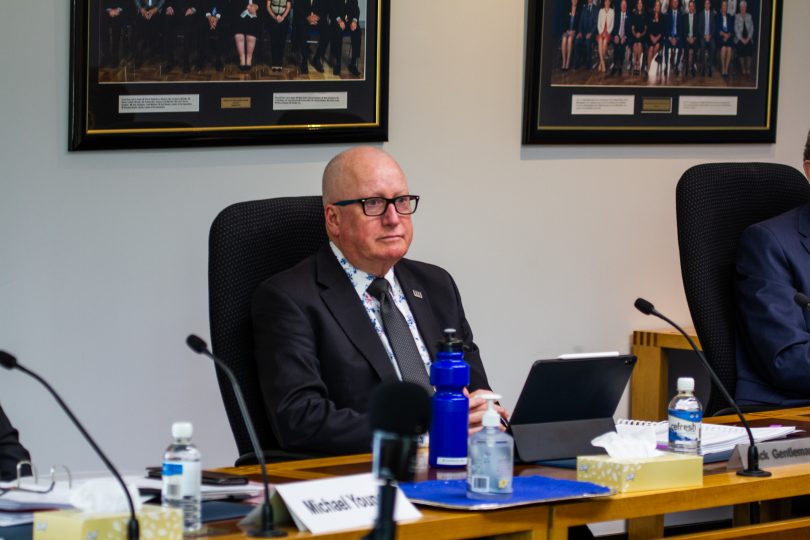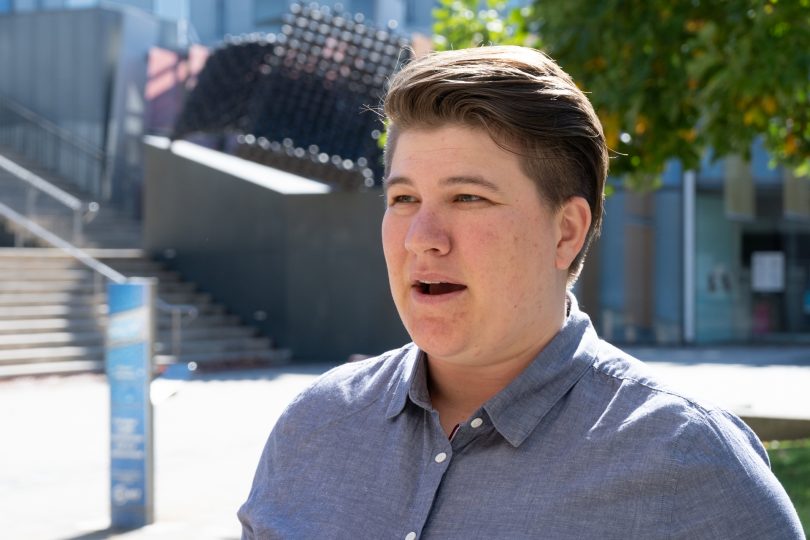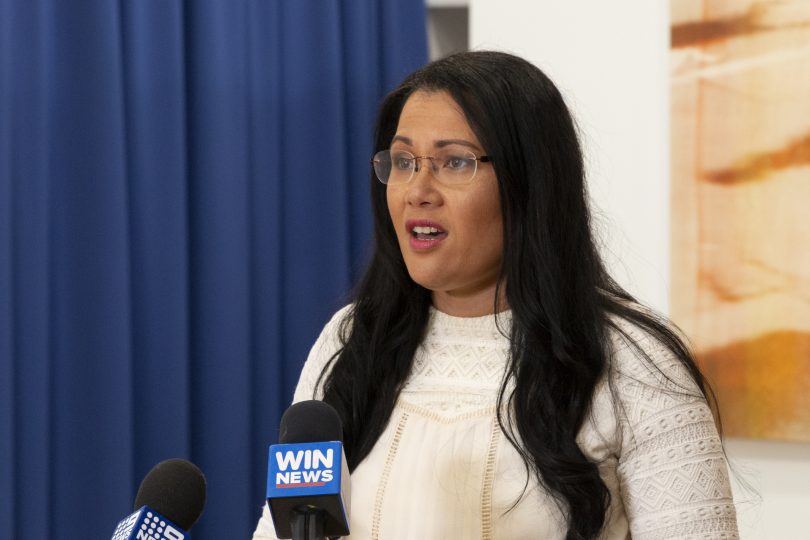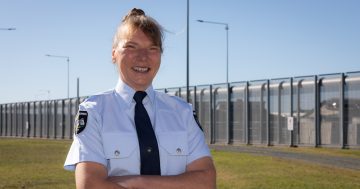
Corrections Minister Mick Gentleman committed to reducing the amount of overtime correction officers are working. Photo: Dominic Giannini.
The amount of overtime that correction officers are working has more than tripled in the last five years, raising fresh concerns of understaffing and worker burnout at Canberra’s prison.
Officers at the Alexander Maconochie Centre have complained about not having enough staff to cover shifts, with as many as 30 per cent of staff being absent or on sick leave on a single day.
The amount of overtime has jumped from 8295 hours in 2016-17 to 30,138 in 2019-20. This is expected to top 35,000 hours this financial year on the current trajectory.
The amount of overtime since 2016 is around 100,000 hours and has come at a cost of almost $7 million.
Overtime is optional, but the secretary of the Community and Public Sector Union’s (CPSU) ACT branch, Maddy Northam, said guards felt pressure to stay back so shifts were not understaffed and the prison could run smoothly.
Ms Northam said the high amount of absenteeism results in rolling lockdowns across the prison which increasingly agitates prisoners who are not allowed out of their cells and builds tension between inmates and guards.
“Staff are working longer hours and that means the prison is not as safe as it can be,” she said, calling for more staff and more training.
Ms Northam said the prison’s management could not tell the union how many work posts in the prison need to be filled.
Each post requires between 2.7 to 3 full-time equivalent staff, she said.

CPSU regional secretary Maddy Northam said the union has been calling for new staff for years. Photo: Dominic Giannini.
Corrections Minister Mick Gentleman said overtime at this level was a concern and committed to reducing it by next year, although he did not provide a target.
“Overtime in a shift work sense is always there, but these levels are quite large, so we need to make sure we recruit as many people as we can for the AMC and we are doing exactly that,” he said.
“The key thing about staffing in a 24-hour environment is to make sure you have as much as you possibly can to ensure you can fill all of those shifts.”
An extra 90 officers will be added to the prison’s roster by the end of the year, including 24 who are currently going through the recruitment course, Mr Gentleman said.
However, Shadow Corrections Minister Elizabeth Kikkert said the reliance on overtime was caused by a failure to maintain adequate staffing levels.
While the government has been conducting recruitment programs, it does not hire enough staff, Ms Kikkert said.
“Data over the last couple of years has shown that staff has increased slowly but … it is not sufficient,” she said.
“The government knows exactly how many staff they need to cover a full roster. Instead of hiring the 10 staff they know that they need, they hire five.
“Many of the staff are overwhelmed, stressed out and burnt out, and because they are suffering mentally, it is difficult for them to perform 100 per cent at work which has an impact on their colleagues and the operations of the AMC.”

Shadow Corrections Minister Elizabeth Kikkert said the ACT Government needed to hire more prison officers to reduce the amount of overtime staff are working. Photo: Dominic Giannini.
When asked why the ACT Government hasn’t had enough staff to fill all of the shifts, Mr Gentleman said the government had been recruiting continuously, but a lot of staff had taken some time off.
“Right across the ACT Government, and with COVID-19 particular, we have said if you feel a little bit crook, do not come into work, and that has impacted on staff numbers at the AMC,” he said.
Mr Gentleman also rejected the assertion that the ACT Government was not proactive enough in addressing and curtailing issues within the prison system.
“The actions that I have taken in the last four months have been very proactive,” he said, pointing to a review into the system and the establishment of an oversight committee headed by Christine Nixon.
“We have seen what we need to do in the prison and we are working to achieve that.”














